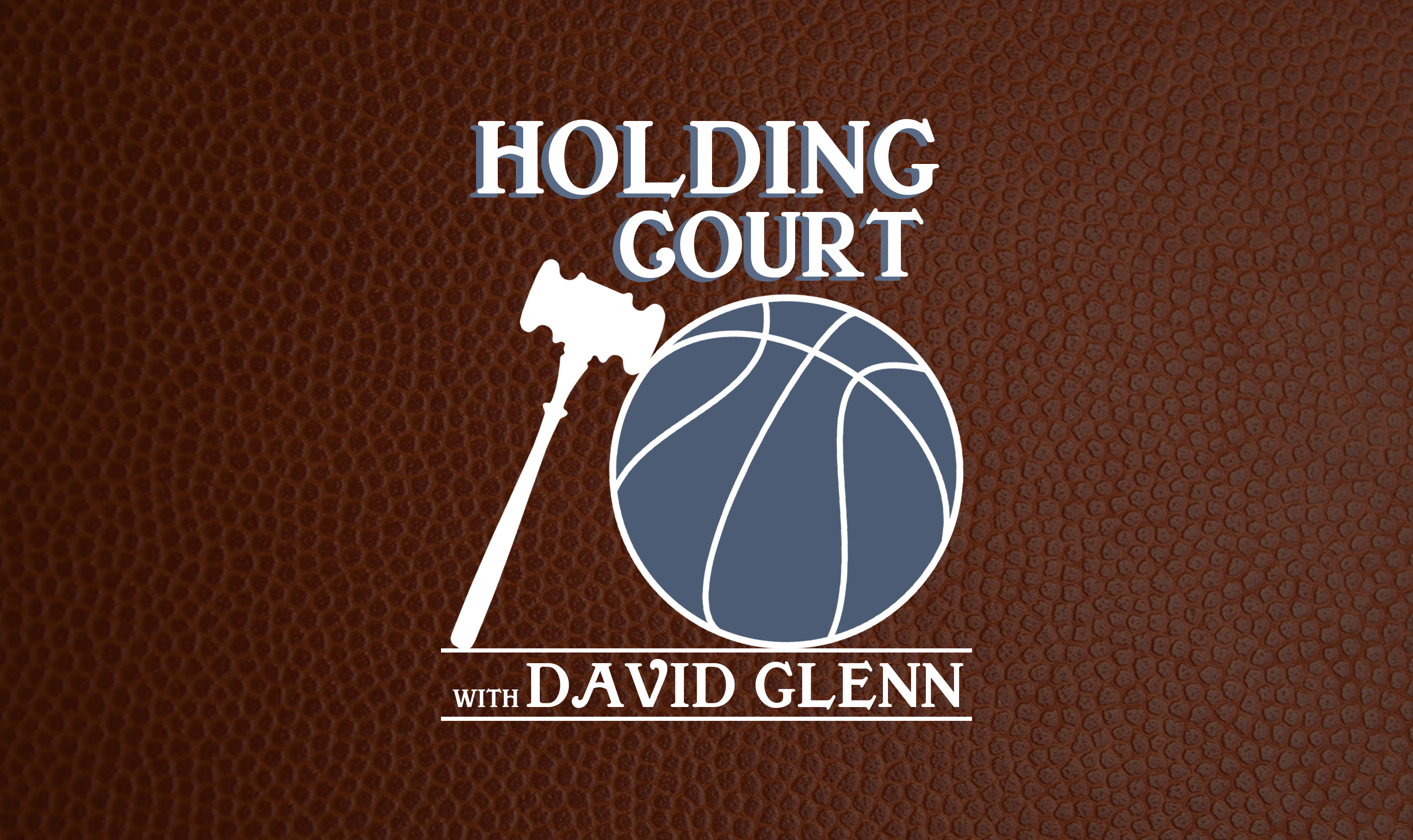
To Avoid Rare NCAA Tournament Miss, UNC Is Down to 3 Possible Paths, and 2 of Those Appear Unlikely
By David Glenn
Since the NCAA changed the eligibility rules for the NCAA Tournament prior to the 1974-75 season, eliminating the one-team-per-conference limitation, North Carolina has defined March Madness more than any other program.
In terms of quality, UNC has five NCAA titles (1982, 1993, 2005, 2009, 2017) in that period. Only Duke (five) can match that number, and only the Blue Devils, Connecticut (four), Kentucky (four), Indiana (three), Louisville (three*) and Villanova (three) are in the same neighborhood.
In terms of quantity, Carolina also leads the way. The Tar Heels have participated in 43 of the 46 NCAA Tournaments held from 1975-2021, missing only in 2002, 2003 and 2010. They also would have been left out in 2020, of course, after finishing 14-19, but the rapidly expanding COVID-19 pandemic cancelled almost everything in the sports world that spring.
Immediately after the 1974 rule change, coach Dean Smith led the Heels on a record-setting stretch of 23 consecutive NCAA Tournaments, a streak supplemented by the three-year Bill Guthridge era and the first season of Matt Doherty’s tenure as the head coach in Chapel Hill.
UNC’s 27-year run (1975-2001) of trips to the Big Dance remains the second-longest streak in NCAA history, behind only Kansas’ current run of 31 (soon 32) in a row. Even the Jayhawks’ stunning streak can be attributed, in part, to a Tar Heel; coach Roy Williams, who inherited a program on probation, quickly got KU rolling, with 14 straight NCAA trips from 1990-2003.
Fast forward to 2022. Entering their final three games (at NC State on Saturday, vs. Syracuse on Monday, at Duke on March 5) of the regular season, this year’s Tar Heels (20-8, 12-5 ACC) find themselves in an extremely unfamiliar place: squarely on the NCAA Tournament bubble.
Depending on the bracketologist surveyed, Carolina generally is considered — in the “if the season ended today” hypothetical — either among the “last four in” or the “first four out.”
While it’s true that the Tar Heels have lost to only one truly inferior opponent (Pitt) this season, it’s also true that their best wins have come against Michigan, Virginia and Virginia Tech, all of which are (at best) bubble teams themselves.
Did you know that UNC is only 1-7 in so-called Quad One games? Those are the high-caliber contests in which a team is facing a top-30 opponent (in the NCAA’s NET rankings) at home, a top-50 opponent on a neutral court, or a top-75 opponent on the road.
“Honestly, I have no idea,” first-year UNC coach Hubert Davis said recently. “I don’t look at that stuff. I don’t pay attention to that stuff.”
Well, the NCAA Tournament Selection Committee will be looking at that stuff, especially on March 13, otherwise known as Selection Sunday. That’s about two weeks away.
With that day in mind, here are the Tar Heels’ three possible paths to an NCAA berth, with #3 by far the most likely:
- Win the ACC Tournament. This is the proverbial sure thing. Automatic NCAA Tournament bids go to conference tournament champions.
If the Tar Heels can win two of their three remaining regular-season games, they will finish in the top four of the ACC standings. This is important because those teams get to skip the tournament’s first two days while preparing for a possible three-game, three-day (Thursday-Friday-Saturday) run to the championship. Historically, top-four seeds have won 61 of 67 ACC Tournaments, or about 91 percent.
Would a fourth-seeded Carolina be able to beat, in one hypothetical, Wake Forest, then Duke, then Miami or Notre Dame, on back-to-back-to-back days? That seems highly unlikely, especially given the Tar Heels’ depth problems, unless multiple bench players somehow gain confidence and consistency between now and the ACC Tournament.
- Sweep NCSU, SU and Duke. Obviously, this won’t be easy, either.
Pitt recently reminded the Tar Heels that no ACC opponent should be taken for granted. NC State has two big-time scorers in Dereon Seabron and Terquavion Smith, and while the Wolfpack is at the bottom of the ACC standings, the State fanbase tends to provide an extremely unfriendly environment for the Heels’ annual visit to Raleigh. The Syracuse game will be at the Smith Center, and Hall of Fame coach Jim Boeheim has a mediocre record (15-13) this season, but this Orange team can be truly explosive offensively, too.
Regarding the trip to Duke and the renewal of one of the best rivalries in American sports history, nothing is impossible, but it’s very hard to find an advantage for the Tar Heels. NBA-caliber talent? Duke. All-ACC candidates? Duke. Home-court advantage? Duke. Coaching experience? Duke. Emotion of the moment? Duke. Would the Blue Devils and their fans really allow legendary coach Mike Krzyzewski to lose his final game at Cameron Indoor Stadium?
Everyone has heard the old saying in these situations: “Throw out the records.” Well, not exactly. Over the last 40 years, whenever the Carolina-Duke rivalry has matched an unranked team against a ranked team, the favorite is 22-4, and three of the four upsets happened on the underdog’s home court. The only exception (I was there!): On March 4, 1990, Smith led an unranked Carolina team to an 87-75 victory over Coach K and the #5 Blue Devils.
- Win “enough” and hope. This path remains well within reach, perhaps even probable.
If UNC beats State and Syracuse but loses to Duke, it will carry a 22-9 record to Brooklyn for the ACC Tournament, it will be a top-four seed in the bracket, and it still would be firmly on the bubble. There would be extra practice time, while 11 other ACC teams begin postseason play.
At that point, any win for the Tar Heels over a probable NCAA Tournament team (perhaps Notre Dame or Miami) would help their cause a lot, any victory over a fellow bubble team (perhaps Wake Forest, Virginia or by then Virginia Tech) would help a little, and of course any upset of Duke likely would seal the deal.
Meanwhile, just in case the Selection Committee’s final at-large selections come down to splitting hairs, Carolina fans can root for other things, too.
For example, every Michigan victory (the Wolverines have several huge games dead ahead) will make UNC’s best home win look even better. Every Virginia Tech victory (the Hokies have won seven of their last eight, losing only to the Tar Heels) down the stretch will help, too, because the Heels swept the Hokies, and their win in Blacksburg ranks as their best road win.
Elsewhere, of course, fans of bubble teams know to root against upsets in other conference tournaments, especially in likely or possible one-bid leagues. This season, for example, Houston (American), Davidson (Atlantic-10) and Murray State (Ohio Valley) could be the only representatives of their leagues in the NCAA Tournament, but if they lose in their conference tournaments they’ll almost certainly still get in via at-large bids, with any underdog winners grabbing those leagues’ automatic bids, thus causing additional bubbles to burst.
These are some of the things that concern bubble teams and their fans every year. Historically, this is unfamiliar territory for the Tar Heels, but only with a big win or two over these next two-plus weeks will the 2022 Heels be able to avoid making the wrong kind of history.
 David Glenn (DavidGlennShow.com, @DavidGlennShow) is an award-winning author, broadcaster, editor, entrepreneur, publisher, speaker, writer and university lecturer (now at UNC Wilmington) who has covered sports in North Carolina since 1987.
David Glenn (DavidGlennShow.com, @DavidGlennShow) is an award-winning author, broadcaster, editor, entrepreneur, publisher, speaker, writer and university lecturer (now at UNC Wilmington) who has covered sports in North Carolina since 1987.
The founding editor and long-time owner of the ACC Sports Journal and ACCSports.com, he also has contributed to the Durham Herald-Sun, ESPN Radio, the New York Times, the Washington Post, Raycom Sports, SiriusXM and most recently The Athletic. From 1999-2020, he also hosted the David Glenn Show, which became the largest sports radio program in the history of the Carolinas, syndicated in more than 300 North Carolina cities and towns, plus parts of South Carolina and Virginia.

